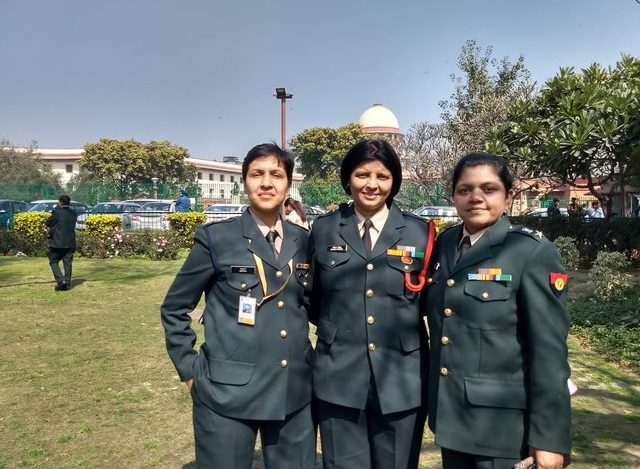
The Shiv Sena on Wednesday described the Supreme Court’s direction to the government to grant permanent commission to women officers in the army as “historic” and criticised the Centre for its “regressive” stand of opposing command postings for women.
An editorial in Sena mouthpiece ‘Saamana’ termed the Supreme Court order on Monday as the victory of “women power” and said that when it comes to valour and sacrifice, one cannot discriminate between man and woman.
The government had opposed women being appointed to top roles such as colonels and brigadiers, saying most soldiers were men from rural backgrounds who were not “mentally schooled to accept women officers in command”.
The government also argued that men and women officers were physically different and could not be treated equally.
The top court rebuked the government, describing its views as “disturbing” and urged “the need for change in mindsets to bring about true equality in the army”.
“The court [decision] gave a shock to the government. The government’s contention is a direct insult of women as it said that women won’t be given ‘command postings’ because enemy nations could take advantage of it. It had also questioned whether women would be able to do such hard task. This is the real attitude of the government which talks of progressiveness but its actions are regressive,” the editorial said.
The Sena remarked that the Central government was weak in history and listed out women’s role in battles and wars in India. It said has the government forgotten the roles of Rani Laxmibai, Rani [Kittur] Chennamma, Rajaram Mohun Roy’s wife Maharani Tarabai, Captain Lakshmi Sehgal in Subhash Chandra Bose’s Indian National Army.
“Indira Gandhi was the prime minister of India and led the country fearlessly. We won the 1971 war [against Pakistan] under her leadership. Therefore, the government’s stand that women are lesser in ability than men is not acceptable to anybody,” it said.
“There is no doubt that one day women will lead the powerful Indian Army. The supreme court decision is historic,” the editorial said.